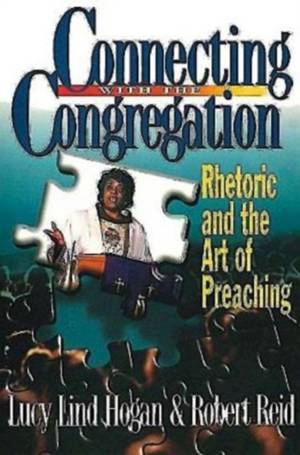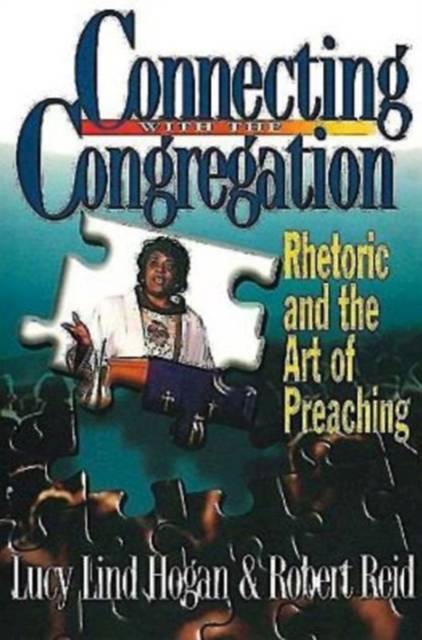
- Afhalen na 1 uur in een winkel met voorraad
- Gratis thuislevering in België vanaf € 30
- Ruim aanbod met 7 miljoen producten
- Afhalen na 1 uur in een winkel met voorraad
- Gratis thuislevering in België vanaf € 30
- Ruim aanbod met 7 miljoen producten
Zoeken
Connecting with the Congregation
Rhetoric and the Art of Preaching
Lucy Lind Hogan, Robert Stephen Reid
Paperback | Engels
€ 27,95
+ 55 punten
Omschrijving
For most people, rhetoric is a dubious term at best. Whenever they see the word, they expect it to be preceded by something like "empty" or "mere." In other words, in the common understanding rhetoric is what happens when people want their hearers to believe them and they don't care whether what they say is right or wrong, true or false. The ancient practice of rhetoric, however, wasn't about slick speech designed to convince or persuade; it was about connecting with one's hearers. It was the recognition that, not only what one says, but also who one is, where one is speaking, and those to whom one speaks, are crucial ingredients of getting the message across. If a speaker does not understand these factors, then the power and effectiveness of what he or she says is diminished. Like everyone else, preachers use rhetoric, whether they realize it or not. All preachers pick up signals about the special nature of the message they are conveying, the circumstances in which they are conveying it, and the listeners to whom it is conveyed. The problem is that they are too often unaware of how they understand and use this information--and hence they use it to poor effect. This volume uses the time-established principles of rhetoric--a field of study which has enjoyed a revival in recent years--to help preachers better connect with the congregation. Here they will discover how to understand their own particular authority, the changing and specific character of the congregation each time it meets to worship, and how the Christian message lends itself to different kinds of speech in different situations. What one learns by using rhetoric to understand preaching, the authors contend, is nothing less than how to be a more effective--and faithful--servant of the Word. Key Features: - Outlines and explains the time-established principles of rhetoric - Written with a particular focus on preaching - An accessible textbook for preaching courses - A helpful resource for pastors and lay preachers who wish to improve their preaching effectiveness Key Benefits: - Readers will understand and be able to apply the principles of rhetoric to the preaching task - Readers will be able to better connect with the congregation - Readers will understand how the Christian message lends itself to different kinds of speech in different situations
Specificaties
Betrokkenen
- Auteur(s):
- Uitgeverij:
Inhoud
- Aantal bladzijden:
- 192
- Taal:
- Engels
Eigenschappen
- Productcode (EAN):
- 9780687085293
- Verschijningsdatum:
- 1/09/1999
- Uitvoering:
- Paperback
- Formaat:
- Trade paperback (VS)
- Afmetingen:
- 152 mm x 229 mm
- Gewicht:
- 249 g

Alleen bij Standaard Boekhandel
+ 55 punten op je klantenkaart van Standaard Boekhandel
Beoordelingen
We publiceren alleen reviews die voldoen aan de voorwaarden voor reviews. Bekijk onze voorwaarden voor reviews.











